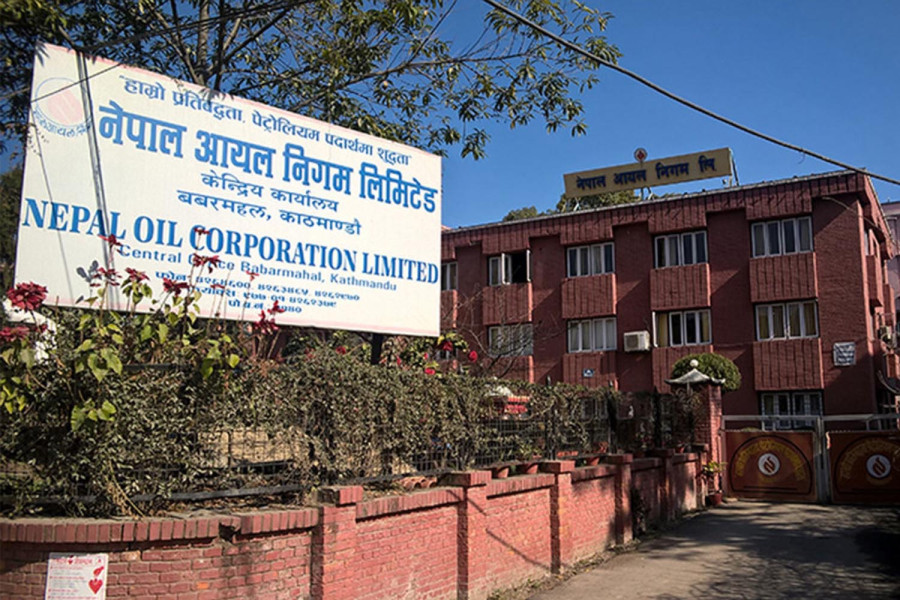Money
Nepal Oil says will not reduce fuel prices despite fall in import prices
The oil monopoly reports it is still in the red with losses falling from billions to millions.
Krishana Prasain
The Nepal Oil Corporation has said it is not in a position to reduce the prices of petroleum products immediately despite the falling prices in the international market.
The state-owned fuel monopoly said its debts have risen so steeply that it has not been able to pay its supplier—the Indian Oil Corporation—for a long time, and reducing the prices of petroleum products would put it under more financial pressure.
Normally, the corporation, using an auto-pricing mechanism, revises the prices of petroleum products every fortnight, based on the tariff sent by the Indian Oil Corporation (IOC).
The IOC reviews export prices of petrol, diesel, and kerosene every fortnight and of other products such as aviation fuel and cooking gas on a monthly basis.
On Tuesday, Nepal Oil received the new tariff. And rates were down—the third time.
“It has been four months since we have not been able to pay the dues to the IOC,” said Sushil Bhattarai, deputy managing director of the corporation.
The Ministry of External Affairs of India has even written to the Nepal government with regard to the Nepal Oil’s dues, according to Bhattarai.
“We are under pressure to clear the dues,” said Bhattarai.
The corporation’s dues to the IOC have reached a staggering Rs33 billion.
With the latest revision of fuel prices, the corporation said it will still incur a loss of Rs640 million per month, down from the monthly loss of Rs1.27 billion in July.
“The decrease in oil prices, however, has minimized our losses,” said Bhattarai. “Losses have fallen from billions to millions but we are still suffering losses.”
The last time the fuel monopoly reduced the prices was on June 25.
The price of petrol was reduced by Rs20 per litre to Rs179 per litre and diesel/kerosene price by Rs29 per litre to Rs163 per litre.
On July 4, the Nepal Oil again increased the price of petrol by Rs2 per litre to Rs181 and diesel/kerosene by Rs9 to Rs172 per litre.
Earlier, the government was instructed by at least two parliamentary committees to slash various taxes imposed on petroleum products. But until now it is not clear which tax(es) related to fuel are to be reduced.
Before that, the corporation on June 2 had reduced the prices of petrol and diesel/kerosene by Rs10 per litre.
Both times, the government did not reduce the tax.
“We would have reduced the price had the government reduced the tax(es),” Bhattarai said. “The corporation reduced the price despite suffering massive losses. Currently, we are not in a position to decrease the prices.”
The corporation’s reluctance to slash fuel prices has been criticised by lawmakers and the public as it is the key factor to push the inflation.
Fuel imports increased 79 percent in the last fiscal year compared to the previous fiscal year 2020-21, according to the Department of Customs.
Nepal imported fuel worth Rs383.92 billion in the last fiscal year 2020-21 against the imports totalling Rs214.4 billion in the previous fiscal year.




 20.12°C Kathmandu
20.12°C Kathmandu













